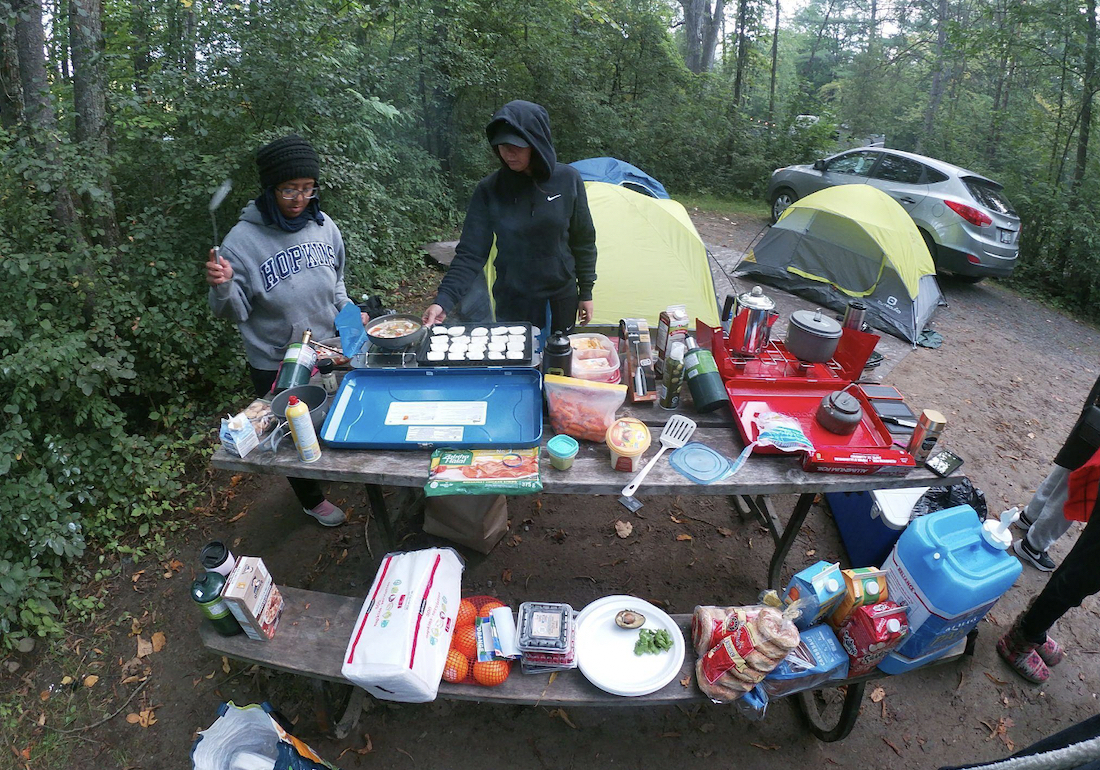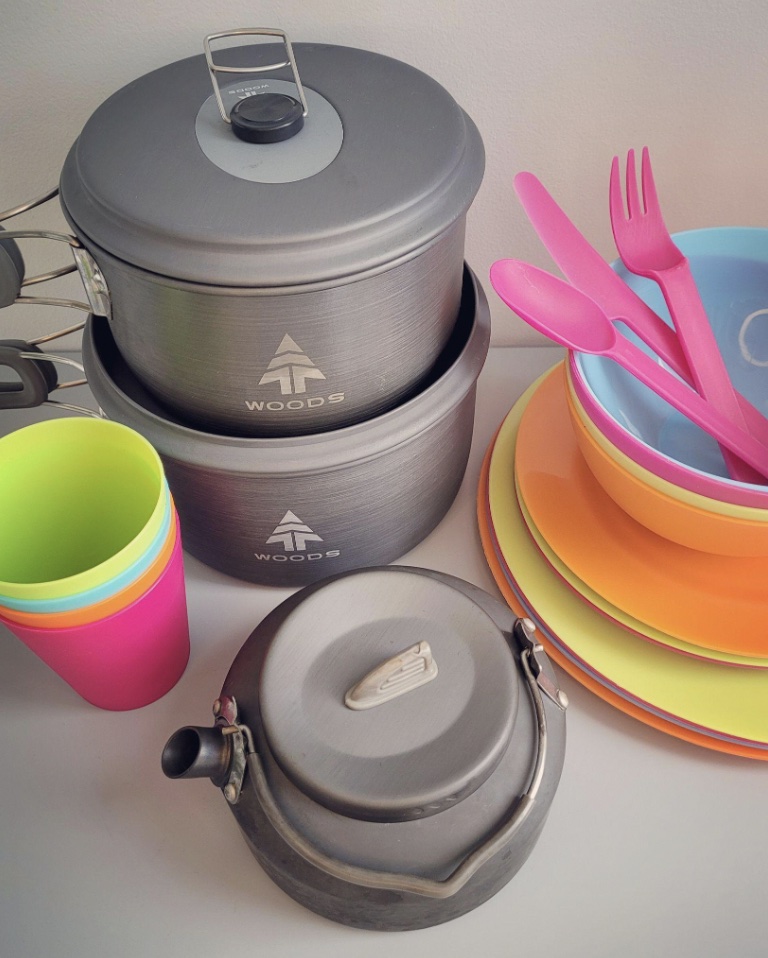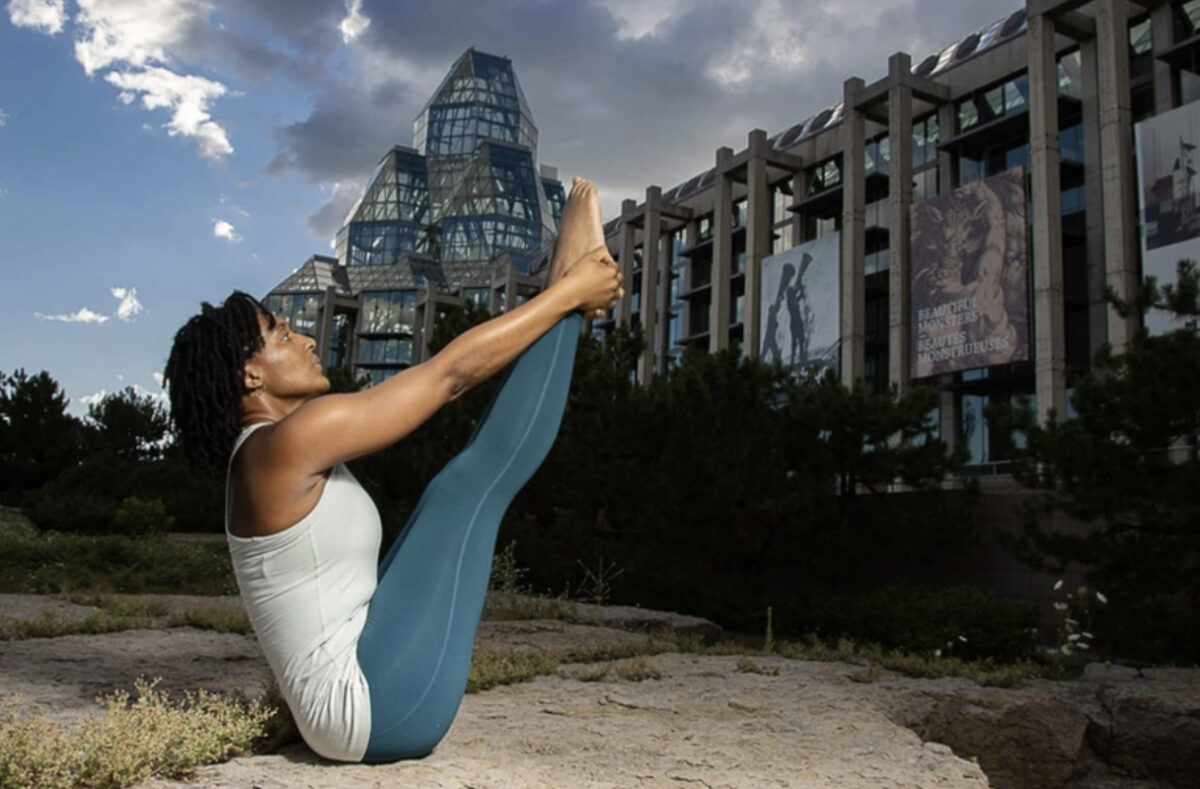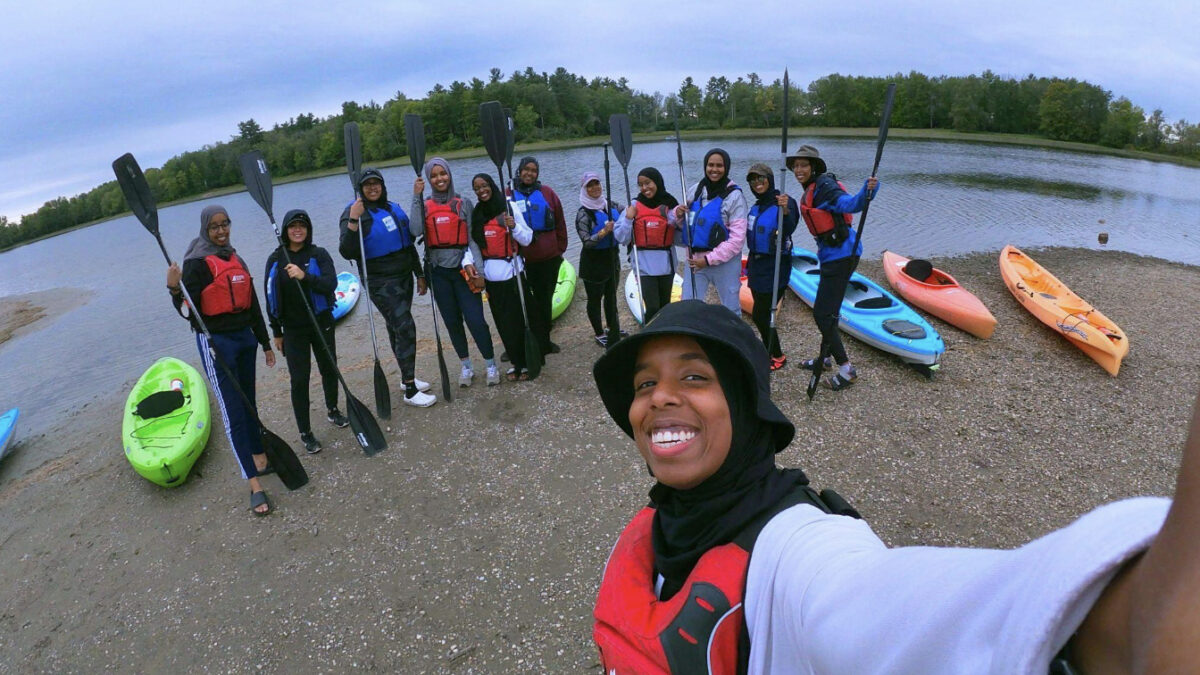Community organizations across Canada are working to make recreation and wellness spaces more accessible for those who are Black, Indigenous or People of Colour (BIPOC).
Organizers say social and economic barriers often prevent racialized communities from accessing and feeling comfortable in outdoor recreation spaces. Through free outdoor gear libraries and inclusive outdoor group activities, organizers across Canada aim to make these spaces more accessible.
Alizah Bright, a Black climbing instructor in Edmonton, said she hopes to build community connections through BIPOC-oriented outdoor groups. She said she has felt left out of recreational spaces in the past.
“People talk about camaraderie and community and team and sports, but that’s not something I ever felt,” Bright said.

Bright’s feeling of exclusion is common among racialized people who want to venture into outdoor recreation.
A 2021 report from Nature Canada showed lower rates of participation in sports and recreation activities for non-white ethnocultural populations. Lower participation rates in racialized populations, according to the report, are attributed to physical, economic, cultural and linguistic barriers.
Asiya Hilowle, a Black Muslim woman living in Ottawa, said many of her friends and family members consistently say they don’t feel they belong in recreation spaces.
“I’ve had my friends and family tell me, ‘Oh, Black people don’t camp,’” she said. “Activities that I do like camping and hiking are ‘only for white people.’ And I’ve heard that especially with younger BIPOC students … These are very, very harmful stereotypes.”
Hilowle runs the Ottawa-based blog Adventure Report with local blogger Megan Kelly. The blog explores Ontario hiking trails and highlights their level of accessibility to new hikers.

In addition to creating space for campers and hikers of all backgrounds, Adventure Report also offers a gear library. The goal is to make camping accessible for everyone because barriers of cost and education can make it difficult for some people to access equipment.
“One of the barriers (BIPOC campers have) come across was just equipment. It’s hard for them to access that or they don’t know where to start,” Hilowle said. “Starting off this camping kit program sort of helps with that barrier that people face.”
The gear library is open to anyone over the age of 18. It even includes a halal kit so Muslim campers can continue religious practices while on the trail.
Other organizations, such as the Ottawa Outdoor Gear Library, also provide free recreational gear for residents.
Aside from gear borrowing, organizations such as BIPOC Yogis of Ottawa provide a financial incentive to BIPOC community members looking to complete yoga teacher training.
After calls to action for racial justice in 2020 were sparked by the police killings of George Floyd and Breonna Taylor in the U.S., along with the murder of Georgia jogger Ahmaud Arbery, Ottawa yoga instructors Kethy Sosso-Kolle and Stéphane Ippersiel began to do photoshoots featuring the city’s BIPOC yogis. Their work led to a scholarship fund for BIPOC yoga teacher training in 2021.
What began as plans for one $1,500 scholarship became four awards after crowdfunding support exceeded Sosso-Kolle’s expectations.
Sosso-Kolle said the scholarship was intended to reduce financial barriers for BIPOC yogis and encourage involvement in the community.
“The fundraiser is not to say that, ‘Because you’re BIPOC you need the money.’ It’s more just a booster to say, ‘Because you’re BIPOC, here — we’re giving you a little boost, feel encouraged to do your training,’ ” said Sosso-Kolle. “In no way is BIPOC equal to (being) financially unstable or not not having the money. Ultimately, like any scholarship, it’s really just to give someone help.”
Women of Colour Remake Wellness, Brown Girl Outdoor World, and Colour The Trails are among other groups founded in recent years to encourage racialized community members to get outdoors and build community through inclusive events.

These organizations say it’s important to make racialized people feel safe in environments that have not traditionally served them.
“If people don’t see themselves in green spaces — and if they don’t feel safe — they will not come,” Ambika Teneti, lead researcher of the Toronto-based study Race and Nature in the City, said in a May 2021 press release issued by Nature Canada, which commissioned the report.
“We need more partnerships between nature organizations and agencies serving racialized urban communities,” said Teneti.
Ottawa Free Fitness coordinator Stephen Bierbrier said it’s important that outdoor space coordinators ensure racialized communities feel included.
Said Bierbrier: “It really does break down a barrier where lines of communication open and shared experiences can be talked about.”
This shared experience in such activities is what interests Bright, who has yet to attend a BIPOC-specific event.
“If I participate in one of these BIPOC events,” said Bright, “maybe I’ll have the opportunity to find that to feel included and not just be the only one.”


